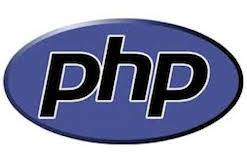How To Install PHP 8 on Ubuntu 22.04 LTS

In this tutorial, we will show you how to install PHP 8 on Ubuntu 22.04 LTS. For those of you who didn’t know, PHP is a programming language used for developing web applications. PHP scripts created can be executed on Linux, macOS, Windows and many other Unix systems provided PHP has been installed.
This article assumes you have at least basic knowledge of Linux, know how to use the shell, and most importantly, you host your site on your own VPS. The installation is quite simple and assumes you are running in the root account, if not you may need to add ‘sudo‘ to the commands to get root privileges. I will show you the step-by-step installation of PHP 8.3 on Ubuntu 22.04 (Jammy Jellyfish). You can follow the same instructions for Ubuntu 22.04 and any other Debian-based distribution like Linux Mint, Elementary OS, Pop!_OS, and more as well.
Prerequisites
- A server running one of the following operating systems: Ubuntu 22.04, 20.04, and any other Debian-based distribution like Linux Mint.
- It’s recommended that you use a fresh OS install to prevent any potential issues.
- SSH access to the server (or just open Terminal if you’re on a desktop).
- An active internet connection.
- A
non-root sudo useror access to theroot user. We recommend acting as anon-root sudo user, however, as you can harm your system if you’re not careful when acting as the root.
Install PHP 8 on Ubuntu 22.04 LTS Jammy Jellyfish
Step 1. First, make sure that all your system packages are up-to-date by running the following apt commands in the terminal.
sudo apt update sudo apt upgrade sudo apt install lsb-release ca-certificates apt-transport-https software-properties-common
Step 2. Installing PHP on Ubuntu 22.04.
By default, the PHP is not available on Ubuntu 22.04 base repository. Now run the following command below to add the Ondrej PPA to your system:
sudo add-apt-repository ppa:ondrej/php
After the repository is added, Update the APT index then install PHP 8.3 using the following command below:
sudo apt update sudo apt install php8.3-cli php8.3-common php8.3-fpm php8.3-mysql php8.3-zip php8.3-gd php8.3-mbstring php8.3-curl php8.3-xml php8.3-bcmath
Confirm the installation and check the installed build version of PHP:
php --version
Step 3. Installing PHP 8.x Extensions.
Install PHP extensions are simple with the following syntax:
sudo apt install php8.3-(extension-name)
Some available extensions are shown below:
sudo apt install php8.3-cli php8.3-common php8.3-imap php8.3-redis php8.3-snmp php8.3-xml php8.3-zip php8.1-mbstring php8.3-fpm
To check loaded PHP modules use the command:
php8.3 -m
Step 4. Test PHP.
To test PHP scripts we need to add the info.php file in the document:
nano /var/www/html/info.php
Add the following to the file:
<?php phpinfo(); ?>
Let’s make sure that the server correctly displays the content generated by the PHP script by opening this page in the browser: http://your-IP-address/info.php
Congratulations! You have successfully installed PHP. Thanks for using this tutorial for installing PHP 8.2 on Ubuntu 22.04 LTS Jammy Jellyfish system. For additional help or useful information, we recommend you check the official PHP website.